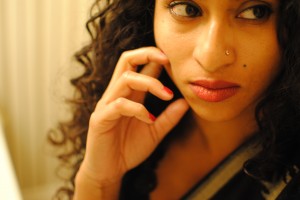
Tarfia Faizullah is the author of Seam (Southern Illinois University Press, 2014), winner of the 2012 Crab Orchard Series in Poetry First Book Award. Her poems appear in Ploughshares, The Missouri Review, The Southern Review, Massachusetts Review, Ninth Letter, and are anthologized in Poems of Devotion: An Anthology of Recent Poets (Wipf & Stock, 2012). A Kundiman fellow, she received her MFA from Virginia Commonwealth University where she served as associate editor of Blackbird, and is the recipient of an AWP Intro Journals Project Award, a Ploughshares Cohen Award, a Fulbright Fellowship, a Dorothy Sargent Rosenberg Prize, scholarships from Bread Loaf Writers’ Conference, Sewanee Writers’ Conference, the Kenyon Review Writers’ Workshop, and other honors. She lives in Washington, DC, where she teaches creative writing and is an editor for Asian American Literary Review and Organic Weapon Arts Chapbook Press.
* * *
LR: Can you share with us some of the decisions you made around structure and narrative when you were putting together Seam?
TF: Seam centers around a long sequence entitled “Interview with a Birangona,” which imagines the process of a Bangladeshi-American female interviewer speaking with a birangona, a Bangladeshi woman raped by Pakistani soldiers during the 1971 Liberation War. The sequence is woven with and bookended by poems interrogating the interviewer’s own heritage and personal losses.
I began writing the first of the interview poems my second year of graduate school, and put them away until two years later when I received a Fulbright to Bangladesh to interview the birangona and conduct further research on the 1971 Liberation War.
Seam is a book that narratively and structurally relies on distance: between two continents and cultures as well as between the year of Bangladesh’s independence and its modern moment. “1971,” for example, the first poem of the book, imagines the Bangladeshi-American interviewer imagining her mother as a young girl watching her mother bathe in a pond during the war. When I returned from Bangladesh, I had a stack of six years’ worth of poems. Only then was I able to begin the work of shaping Seam into a collection that tries to both enact and traverse that distance.
LR: How did your experience as a Fulbright scholar in Bangladesh influence the development of your manuscript?
TF: One of the main reasons I applied for a Fulbright to Bangladesh was because I had started to worry about the ethical consequences of “Interview with a Birangona.” So many of the women who were raped in 1971 are still alive in Bangladesh, and I began to question whether the project was appropriating the voices of the very women I was struggling to render and understand.
Seam could not have happened without my time in Bangladesh, where I spent a year researching the war and interviewing many birangona. My daily life also became part of the mosaic of my time in Bangladesh, and therefore part of Seam.
When I began to speak with the birangona, I realized how inadequate those early poems truly were. They could not encompass the full complexity of their lives nor mine. I spent a great deal of time with a family of sisters, each of whom had been raped during the war. At one point, while I was interviewing one sister, another sister came up behind me and gathered my hair in her hands. “You poor thing . . . you must have no one to comb your hair,” she said.
I still have no words for how I felt about a woman enduring such horror feeling sorry for me. In this way, and so many others, my time in Bangladesh made me rethink culture, victimhood, violence, and empathy.